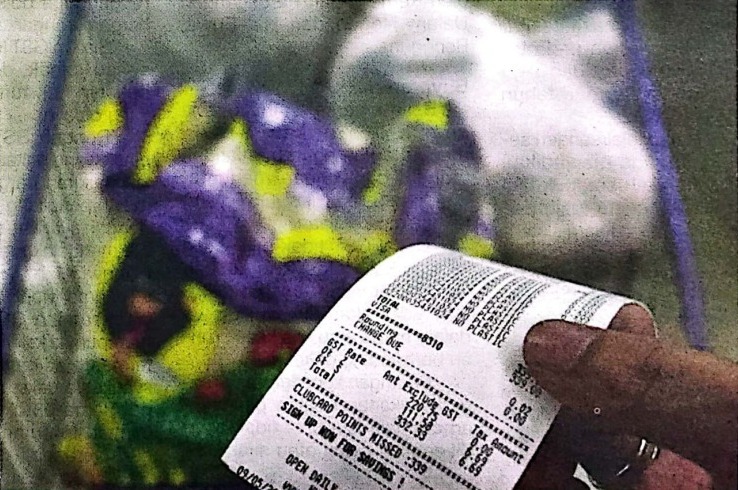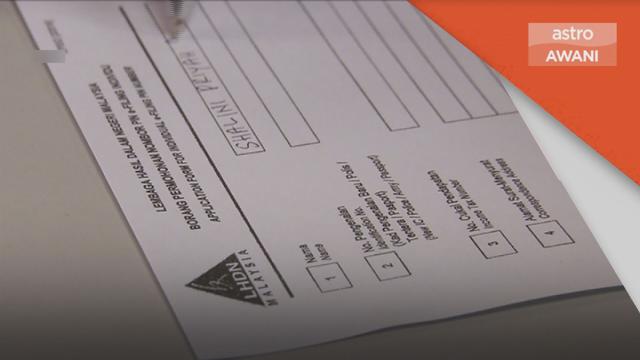TAXING the rich may be one of the measures to increase tax revenue immediately but it may only incentivise them to keep their assets abroad.
Malaysian Association of Tax Accountants deputy secretary general Dr Mohd Fairuz A Razak said introducing a wealth tax has always been tricky, given how the affluent can move their fortunes
MEDIA
MEDIA
Implementing wealth tax in Malaysia may get tricky

TAXING THE RICH: Supercar lovers checking out some of the luxurious Lamborghini models available. An option to consider in implementing the wealth tax is for the rich to redeploy the tax payable by purchasing govt bonds or private debt securities with a particular tenure.
The affluent can just move and keep their assets abroad
– by NUR HANANI AZMAN / pic by MUHD AMIN NAHARUL
TAXING the rich may be one of the measures to increase tax revenue immediately but it may only incentivise them to keep their assets abroad.
Malaysian Association of Tax Accountants deputy secretary general Dr Mohd Fairuz A Razak said introducing a wealth tax has always been tricky, given how the affluent can move their fortunes from one tax jurisdiction to the next.
He said another problem comes with the ability to track the wealth held abroad. Moreover, it is difficult for tax authorities to audit global assets and apply judgement on whether valuations on foreign assets are fair.
“On one hand, wealth tax may arguably generate more revenue for the national coffers. On the other hand, whether it would do so after factoring in the unintended consequences remains uncertain.
For instance, the introduction of wealth tax may lead to shareholders refraining and delaying from selling to avoid the immediate tax hit, resulting in a ‘lock-in’ effect. In the short run, this will affect the fluidity and efficiency of the equities market,”
he told The Malaysian Reserve.
Mohd Fairuz noted that the absence of a wealth tax on the disposal of investments or capital assets is one of Malaysia’s competitive advantages in the global investment market.
“If Malaysia wants to implement a wealth tax and ensure wealth is reinvested back in Malaysia, an option can be given to them to redeploy the tax payable by purchasing government bonds or private debt securities with a particular tenure,”
he said.
In the longer run, if wealth tax is implemented and taxpayers are required to report and provide information to the Inland Revenue Board (IRB) on their assets, they will move to another jurisdiction, said Mohd Fairuz.
“As a result, an increase in tax disputes with the IRB can be expected based on the nature of such gains, for example trading gains or capital gains. Similar issues on the taxation of real property transactions have already resulted in many past and ongoing disputes with the IRB,”
he said.
For wealth, he said the government will need to carefully consider the implementation method, taking into account factors such as its impact on the investment climate in Malaysia and how it would fit in with existing legislation (in particular, the Real Property Gains Tax Act 1976).
“A detailed and comprehensive review of the bill will be necessary not to be overly complex to monitor and administer for the authorities and comply with the taxpaying public and their advisors,”
he said.
Last week, Singapore raised taxes on its wealthiest 1% and increased other levies as it aims to bolster its finances to chart a post-pandemic future.
In detailing the budget for the year starting April 1 — which is expected to result in an unexpected deficit — the republic’s Finance Minister Lawrence Wong said the planned changes, which include boosting consumption and carbon taxes, are needed to foster a “fairer revenue structure”.
Deloitte Malaysia tax leader Sim Kwang Gek said the Singapore government has been talking about wealth tax for quite some time and it comes as no surprise that its Budget 2022 announced certain measures to tax the more well-heeled taxpayers.
“Instead of introducing a new wealth tax, Malaysia may consider similar measures. In Malaysia, the personal income tax rate was increased from 28% to 30% for those having annual chargeable income of more than RM2 million. It was reported that this measure affected approximately 2,000 top income earners in Malaysia.
“If the rate were to be further increased, the question is how much additional tax revenue can be generated considering that the 2,000 top income earners represent only about 0.08% of the total individual taxpayers in Malaysia,”
she said.
Sim explained that this number represents only the category of taxpayers who are under employment where taxes are automatically deducted from their salaries monthly.
“What about individuals who are not employed but are high income earners such as freelancers, influencers and e-business owners?”
she said, adding that more effort needs to be done to ensure all individuals pay their fair share of taxes.
“The mandatory assignment of a Tax Identification Number to all Malaysians above the age of 18 coupled with greater enforcement activities should provide the government with more visibility on these taxpayers and in turn generate more tax revenue for the country,”
she added.
Implementing wealth tax in Malaysia may get tricky

TAXING THE RICH: Supercar lovers checking out some of the luxurious Lamborghini models available. An option to consider in implementing the wealth tax is for the rich to redeploy the tax payable by purchasing govt bonds or private debt securities with a particular tenure.
The affluent can just move and keep their assets abroad
– by NUR HANANI AZMAN / pic by MUHD AMIN NAHARUL
TAXING the rich may be one of the measures to increase tax revenue immediately but it may only incentivise them to keep their assets abroad.
Malaysian Association of Tax Accountants deputy secretary general Dr Mohd Fairuz A Razak said introducing a wealth tax has always been tricky, given how the affluent can move their fortunes from one tax jurisdiction to the next.
The Sales Tax (Amendment) Bill 2022, which seeks to impose a flat 10 per cent tax on goods purchased online, was passed in the Dewan Rakyat earlier this month.
He said another problem comes with the ability to track the wealth held abroad. Moreover, it is difficult for tax authorities to audit global assets and apply judgement on whether valuations on foreign assets are fair.
“On one hand, wealth tax may arguably generate more revenue for the national coffers. On the other hand, whether it would do so after factoring in the unintended consequences remains uncertain.
For instance, the introduction of wealth tax may lead to shareholders refraining and delaying from selling to avoid the immediate tax hit, resulting in a ‘lock-in’ effect. In the short run, this will affect the fluidity and efficiency of the equities market,”
he told The Malaysian Reserve.
Mohd Fairuz noted that the absence of a wealth tax on the disposal of investments or capital assets is one of Malaysia’s competitive advantages in the global investment market.
“If Malaysia wants to implement a wealth tax and ensure wealth is reinvested back in Malaysia, an option can be given to them to redeploy the tax payable by purchasing government bonds or private debt securities with a particular tenure,”
he said.
In the longer run, if wealth tax is implemented and taxpayers are required to report and provide information to the Inland Revenue Board (IRB) on their assets, they will move to another jurisdiction, said Mohd Fairuz.
“As a result, an increase in tax disputes with the IRB can be expected based on the nature of such gains, for example trading gains or capital gains. Similar issues on the taxation of real property transactions have already resulted in many past and ongoing disputes with the IRB,”
he said.
For wealth, he said the government will need to carefully consider the implementation method, taking into account factors such as its impact on the investment climate in Malaysia and how it would fit in with existing legislation (in particular, the Real Property Gains Tax Act 1976).
“A detailed and comprehensive review of the bill will be necessary not to be overly complex to monitor and administer for the authorities and comply with the taxpaying public and their advisors,”
he said.
Last week, Singapore raised taxes on its wealthiest 1% and increased other levies as it aims to bolster its finances to chart a post-pandemic future.
In detailing the budget for the year starting April 1 — which is expected to result in an unexpected deficit — the republic’s Finance Minister Lawrence Wong said the planned changes, which include boosting consumption and carbon taxes, are needed to foster a “fairer revenue structure”.
Deloitte Malaysia tax leader Sim Kwang Gek said the Singapore government has been talking about wealth tax for quite some time and it comes as no surprise that its Budget 2022 announced certain measures to tax the more well-heeled taxpayers.
“Instead of introducing a new wealth tax, Malaysia may consider similar measures. In Malaysia, the personal income tax rate was increased from 28% to 30% for those having annual chargeable income of more than RM2 million. It was reported that this measure affected approximately 2,000 top income earners in Malaysia.
If the rate were to be further increased, the question is how much additional tax revenue can be generated considering that the 2,000 top income earners represent only about 0.08% of the total individual taxpayers in Malaysia,”
she said.
Sim explained that this number represents only the category of taxpayers who are under employment where taxes are automatically deducted from their salaries monthly.
“What about individuals who are not employed but are high income earners such as freelancers, influencers and e-business owners?”
she said, adding that more effort needs to be done to ensure all individuals pay their fair share of taxes.
“The mandatory assignment of a Tax Identification Number to all Malaysians above the age of 18 coupled with greater enforcement activities should provide the government with more visibility on these taxpayers and in turn generate more tax revenue for the country,”
she added.
Media Terkini

SYOR CUKAI LEBIH ADIL

Bajet 2023 | Tangani ketirisan, halusi sistem percukaian | Astro Awani

PERSATUAN AKAUNTAN PERCUKAIAN MALAYSIA (M.A.T.A)
Block 1D, 27-1, Jalan Wangsa Delima 12,
Wangsa Link, Pusat Bandar Wangsa Maju
53300 Kuala Lumpur.

WAKTU OPERASI
Isnin hingga Jumaat
9.00 pagi – 5.00 petang
![]()
HUBUNGI KAMI
E-mel: mata@mata.org.my
Tel: 03-4149 9599 atau 5078
Faks: 03-4149 7577
HP: 016-240 9343

PERSATUAN AKAUNTAN PERCUKAIAN MALAYSIA (M.A.T.A)
Block 1D, 27-1, Jalan Wangsa Delima 12,
Wangsa Link, Pusat Bandar Wangsa Maju
53300 Kuala Lumpur.

WAKTU OPERASI
Isnin hingga Jumaat
9.00 pagi – 5.00 petang
![]()
HUBUNGI KAMI
E-mel: mata@mata.org.my
Tel: 03-4149 9599 atau 5078
Faks: 03-4149 7577
HP: 016-240 9343

